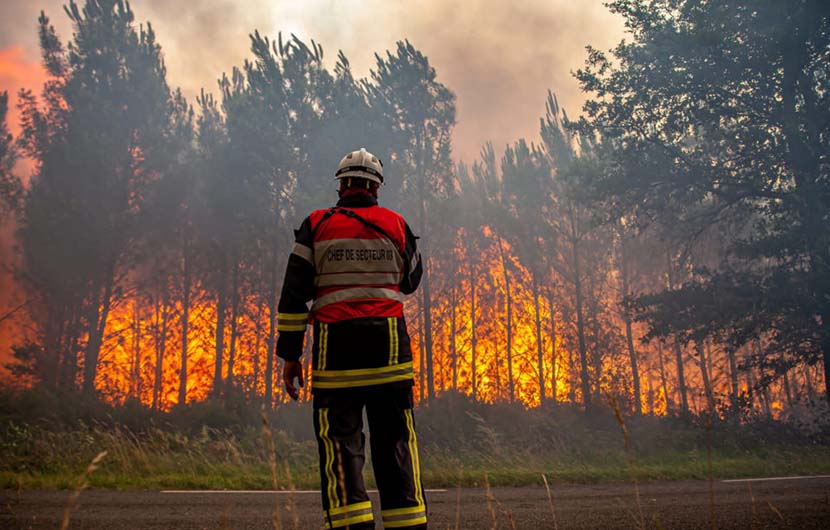Thursday, July 27, 2023

In recent years, Europe has seen an alarming increase in wildfires and heatwaves, which has been primarily ascribed to climate change. Rising temperatures and lengthy dry periods have sparked deadly wildfires in numerous European nations, causing disruptions to residents, animals, and natural landscapes. The travel and tourism sector, which contributes significantly to the region’s economy, is also suffering the effects of these environmental difficulties.
Most of tourism destinations at risk
Due to shifting climatic trends, some famous tourist areas in Europe are facing increased wildfire danger. Severe flames have ravaged Spain, Portugal, Greece, Italy, and France, threatening major destinations, national parks, and historical monuments. The prospect of wildfires has created uncertainty for travellers and tour operators, potentially disrupting travel plans and forcing last-minute cancellations.
Safety Concerns and Travel Warnings
Safety issues have arisen as a key barrier for the travel and tourist business as wildfires and heatwaves grow more common and violent. During extreme weather events, authorities issue travel warnings and recommendations, advising visitors to avoid high-risk locations. Tourists are becoming more hesitant to visit areas prone to wildfires and heatwaves, impacting the revenue streams of local companies that rely largely on tourism.

Seasonal Shifts and Off-Peak Travel
In Europe, wildfires and heatwaves have disturbed conventional tourism seasons. Travellers are reconsidering their trip plans as the busy summer months get riskier owing to high temperatures and fire threats. Many people choose off-season travel, visiting during calmer seasons to minimise potential threats. This trend has ramifications for tourism-dependent countries that rely significantly on peak season earnings.
Impact on Nature Tourism
Wildfires and heatwaves have an especially negative impact on nature-based tourism, which includes activities such as hiking, camping, and animal safaris. These natural calamities endanger visitors, animals, and fragile ecosystems. Areas famed for their pristine landscapes may take years to recover, discouraging eco-conscious visitors from visiting damaged areas. Travel operators must rethink their itineraries and safety precautions in order to adapt to the changing climate.
Damage in Tourism Infrastructure
Wildfires may destroy infrastructure such as hotels, restaurants, transit networks, and recreational facilities. Such infrastructure can be costly and time-consuming to rebuild and maintain. The uncertainty surrounding future wildfires may discourage investors from constructing new tourism businesses in high-risk locations, hurting job possibilities and economic growth in these areas.

Preferences in Environmental Conservation
Tourist choices are changing as people become more aware of climate change and its impact on wildfires and heatwaves. Travellers are becoming more mindful of their carbon footprints and are looking for environmentally beneficial and sustainable solutions. As a result, there is an increasing demand for locations that prioritise environmental protection, disaster preparedness, and responsible tourism.
Insurance and Liability Issues
The increasing risk of wildfires and heatwaves has created insurance issues for the tourism sector. For places prone to natural catastrophes, travel insurance providers may change their plans or raise prices. Furthermore, organisations operating in high-risk locations may face increased liability risks, hurting their overall financial stability and investment appeal.
Wildfires and heatwaves are becoming more often and intense in Europe, causing considerable problems to the travel and tourist business. The consequences are far-reaching, ranging from safety issues and altered visitor tastes to infrastructure damage and seasonal fluctuations.
To address these difficulties, governments, tourism stakeholders, and travellers must work together to develop sustainable practices, promote awareness, and adapt to changing climatic conditions. The travel sector can lessen the consequences of wildfires and heatwaves by encouraging resilience and adopting responsible tourism, while also conserving Europe’s unique and attractive landscapes for future generations to enjoy.
Tags: devastating wildfire, Europe, wildfire
Saturday, April 27, 2024
Saturday, April 27, 2024
Sunday, April 28, 2024